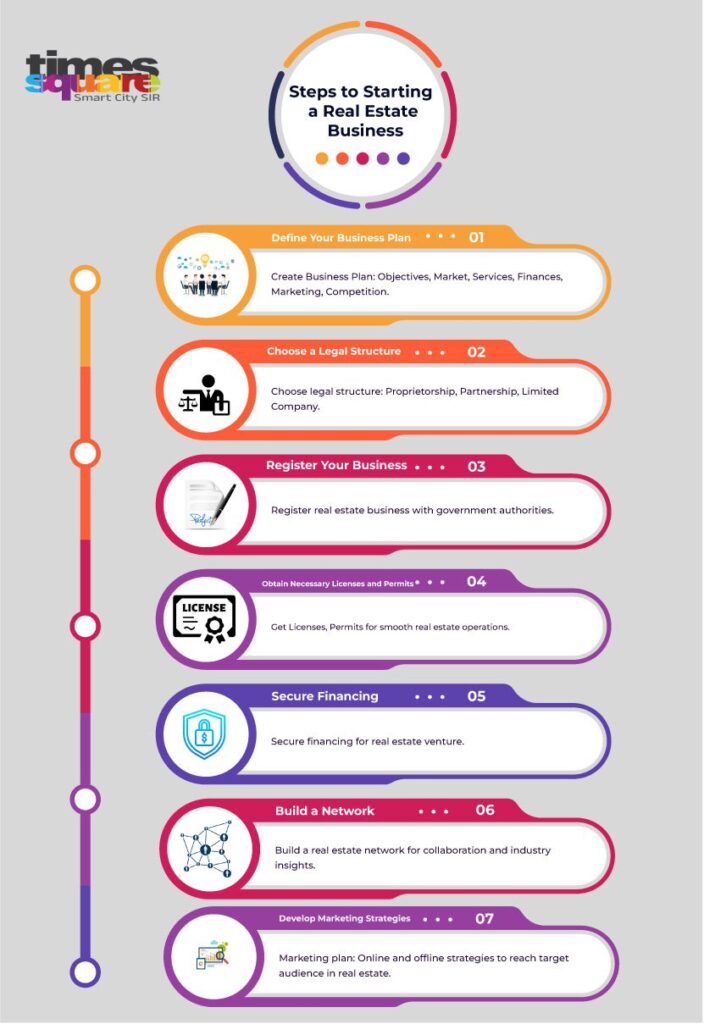
Hey there, aspiring real estate tycoon! Are you ready to dive into the bustling world of property, land, and real estate? Well, you’ve come to the right place because today we’re going to explore the ins and outs of setting up a real estate business in none other than beautiful Bangladesh!
Now, you might be wondering why you should consider venturing into the realm of real estate in Bangladesh. Well, let me tell you, my friend, the potential is absolutely immense! With a rapidly growing economy and a population of over 160 million people, there’s no shortage of opportunities to tap into the thriving real estate market.
Are you ready to navigate the process of registering your real estate business in Bangladesh? If you’re looking for a comprehensive guide on how to register real estate in Bangladesh or How to Setup Real Estate Business in Bangladesh, you’ve come to the right place! In this blog post, we’ll provide you with step-by-step instructions and valuable insights to make the registration process a breeze, all while maintaining an SEO-friendly tone.
Understanding the legal requirements and procedures for real estate registration is crucial for a successful business venture in Bangladesh. We’ll walk you through the necessary paperwork, government regulations, and key considerations to ensure a smooth registration process.
Understanding Real Estate:
In order to successfully navigate the process of registering a real estate business in Bangladesh, it’s important to have a clear understanding of what real estate entails and its significance in the country.
Real estate refers to property consisting of land, buildings, and any natural resources attached to it. This can include residential properties, commercial buildings, agricultural land, industrial sites, and vacant land. Real estate plays a crucial role in the economic development of Bangladesh, serving as a key sector for investment, employment, and infrastructure development.
The significance of real estate in Bangladesh cannot be overstated. It contributes significantly to the country’s GDP and employment generation. The real estate sector not only provides housing solutions but also supports various industries such as construction, architecture, engineering, and interior design. Moreover, it plays a vital role in urban development, improving the quality of life for the growing population.
Guide to Setup Real Estate Business in Bangladesh:
Starting a real estate business can be an exciting and rewarding venture. However, it requires careful planning and a thorough understanding of the process. In this section, we will discuss the steps involved in starting a real estate business in Bangladesh, the advantages and challenges you may encounter, and the potential market opportunities in the real estate industry.
Steps to Starting a Real Estate Business:
Define Your Business Plan: Begin by outlining your business objectives, target market, and services you plan to offer. Develop a comprehensive business plan that includes financial projections, marketing strategies, and an analysis of the competitive landscape.
Choose a Legal Structure: Select the most suitable legal structure for your real estate business. Common options include sole proprietorship, Partnership, and private limited company. Each structure has its own advantages and implications in terms of liability, taxation, and ownership.
Register Your Business: Register your real estate business with the relevant government authorities.
Obtain Necessary Licenses and Permits: Depending on the scope of your real estate activities, you may need additional licenses and permits. This could include a Real Estate Developer License, a Land Developer License, or an Environmental Clearance Certificate. Ensure you comply with all legal requirements to operate your business smoothly.
Secure Financing: Determine your financial needs and explore financing options. This could involve self-funding, bank loans, or partnerships with investors. Prepare a solid financial plan and seek professional advice to secure the necessary funds for your real estate business.
Build a Network: Establish connections within the real estate industry by joining professional associations, attending industry events, and networking with other professionals. Building a strong network can provide valuable opportunities for collaboration, referrals, and staying updated with industry trends.
Develop Marketing Strategies: Create a marketing plan to promote your real estate business. Utilize both online and offline channels to reach your target audience. Consider using social media platforms, SEO, Google Ads, websites, print media, and attending property expos to showcase your properties and attract potential clients.

Use this code to share this image on your website
<p><strong>Please include attribution to bdtimessquare.com/ with this graphic.</strong><br /><br /><a href=''><img src='https://bdtimessquare.com/how-to-setup-real-estate-business-in-bangladesh/' alt='Steps to Starting a Real Estate Business' 540px /></a></p>Advantages and Challenges of Starting a Real Estate Business:
Starting a real estate business in Bangladesh comes with its own set of advantages and challenges. Let’s take a closer look at both:
Advantages:
Lucrative Investment Opportunity: The real estate industry in Bangladesh offers significant potential for returns on investment. With a growing population, urbanization, and increasing demand for housing and commercial spaces, there is ample opportunity for profit.
Diversification of Income: Running a real estate business allows you to diversify your income streams. You can earn revenue through property sales, rental income, property management services, and real estate consultancy.
Long-Term Appreciation: Real estate properties generally appreciate in value over time. By investing in properties strategically, you have the potential to generate long-term wealth and financial stability.
Challenges:
Market Volatility: The real estate market can be subject to fluctuations and economic downturns. It’s important to stay informed about market conditions and adapt your strategies accordingly.
Legislative and Regulatory Complexity: The real estate sector in Bangladesh is governed by various laws and regulations. Keeping up with the legal requirements and compliance can be challenging, especially for new businesses.
Competition: The real estate industry is highly competitive. Establishing a strong presence and differentiating yourself from competitors can be a challenge, especially in popular areas.
Potential Market Opportunities in the Real Estate Industry in Bangladesh:
Despite the challenges, the real estate industry in Bangladesh offers numerous market opportunities. Some key areas of potential growth include:
Affordable Housing: The demand for affordable housing is on the rise, especially in urban areas. Developing affordable housing projects can cater to this growing market segment.
Commercial Spaces: With the growth of businesses and the rise of e-commerce, there is a demand for well-designed commercial spaces such as offices, retail outlets, and warehouses.
Smart Homes and Green Buildings: There is an increasing interest in smart homes and environmentally sustainable buildings. Incorporating technology and eco-friendly features into your real estate projects can attract environmentally-conscious buyers.
Real Estate Consultancy: Offering specialized real estate consultancy services can be a lucrative business opportunity. This can include property valuation, legal advice, and market analysis.
By identifying and capitalizing on these market opportunities, you can position your real estate business for success in the dynamic Bangladeshi market.
Type of Real Estate Company:
Sole Proprietorship Company
A sole proprietorship is a business structure where a single individual owns and operates the business. It is the simplest and most common form of business ownership. In the real estate industry, a sole proprietorship can be a suitable option for small-scale operations or individual real estate agents.
Advantages of Sole Proprietorship:
Simplicity: Setting up a sole proprietorship is relatively easy and straightforward. There are no complex legal procedures or excessive paperwork to worry about.
Control: As the sole proprietor, you have complete control over your business. You can make decisions independently and steer your real estate venture in the direction you desire.
Profit Retention: In a sole proprietorship, you get to keep all the profits earned by your business. This means there’s no sharing of profits with partners or shareholders.
Disadvantages of Sole Proprietorship:
Unlimited Liability: One major drawback of a sole proprietorship is that you have unlimited personal liability for the debts and legal obligations of your business. This means your personal assets may be at risk if your business faces financial difficulties.
Limited Resources: Since you’re the sole owner, raising capital for large-scale real estate projects may be challenging. It’s like trying to build a skyscraper with only a handful of resources.
Partnership Company:
A partnership is a business structure where two or more individuals join together to carry out a business venture. In the real estate industry, partnerships can be beneficial as they allow for shared resources, skills, and responsibilities.
Advantages of Partnership:
Shared Burden: In a partnership, you can divide tasks and responsibilities among partners, lightening the load for each individual. It’s like having a team of superheroes tackling different aspects of the business.
Complementary Skills: Partnerships allow you to leverage the diverse skills and expertise of each partner. For example, one partner may excel in property acquisition, while another may be adept at negotiations or marketing.
Challenges:
Disagreements: With multiple decision-makers, conflicts can arise. It’s important to establish clear communication channels and decision-making processes to handle disagreements effectively.
Shared Liability: Partnerships come with joint and several liability, meaning each partner is responsible for the actions and debts of the Partnership. It’s like being part of a superhero team where everyone is accountable for the actions of their teammates.
Private Limited Company:
A private limited company is a separate legal entity owned by shareholders. It offers several benefits, such as limited liability protection and easier access to funding. In the real estate industry, forming a private limited company can provide credibility and attract investors. Let’s explore the benefits of forming a private limited company for real estate businesses, the process of registering with the Registrar of Joint Stock Companies and Firms (RJSC), and the necessary documents and requirements for registration.
Benefits of Forming a Private Limited Company
Forming a private limited company for your real estate business offers the following advantages:
Limited Liability Protection: Shareholders’ liability is limited to their investment in the company. Personal assets are generally not at risk in case of business debts or legal issues.
Separate Legal Entity: A private limited company is a distinct legal entity separate from its owners. This separation allows the company to enter into contracts, own property, and engage in legal proceedings in its own name.
Enhanced Credibility: A registered private limited company often enjoys greater credibility and trust among clients, investors, and financial institutions. This can facilitate partnerships, attract funding, and enhance business opportunities.
Easier Access to Funding: Private limited companies have more options for raising capital, such as issuing shares to investors or obtaining loans from financial institutions. This can provide the necessary funds for growth and expansion.
Registration Process for Real Estate Company in Bangladesh:
Partnership and Private limited company’s setup process is almost the same. So I think no need to explain the process separately.
To conduct business in Bangladesh as a private limited company, it is necessary to register your business with the Registrar of Joint Stock Companies and Firms (RJSC). Here are the step-by-step procedures to guide you through the registration process:
Step 1: Name Clearance
The first step is to request name clearance from the RJSC for your desired company name. This ensures that the name is available and not already registered by another entity.
Step 2: Document Preparation
Next, you need to prepare the required documents, including:
The Company’s Memorandum of association (MoA) and Articles of Association (AoA).
Preparing the Memorandum of Association and Articles of Association:
The Memorandum of Association (MoA) and Articles of Association (AoA) are crucial documents required for the registration of a real estate company in Bangladesh. These documents outline the company’s objectives, rules, and regulations and define the relationships between its shareholders and directors.
Step 3: Open a Bank Account
For any company, it is essential to open a bank account in any Bangladeshi schedule bank .
Step 4: Submission of Documentation
Once all the required documentation, including the completed forms and the necessary fees and taxes, are prepared, they must be presented to the RJSC for evaluation.
Step 5: Certification and Issuance
The RJSC will review and certify the registration documents. Upon completion of the evaluation process and upon receiving the required paperwork, the RJSC typically issues the certificates within a period of 3 to 4 weeks.
Registering your business with the RJSC is a crucial step towards establishing a private limited company in Bangladesh. By following these procedures and ensuring all necessary documentation is in order, you can embark on your business journey confidently.
Other Necessary Actions for Registering Real Estate Company:
We need other necessary actions to set up a real estate company. Before starting to set up a company, you need to follow the following steps :
Obtain a Trade License: A trade license is a legal requirement to operate any business in Bangladesh. To obtain a trade license, you need to apply to the local City Corporation or Municipality. The application should include necessary documents such as your company’s registration certificate, tax identification number, and other relevant information. Once approved, you will receive a trade license to conduct business legally.
Obtain a Tax Identification Number (TIN): To comply with tax regulations; you need to obtain a Tax Identification Number (TIN) from the National Board of Revenue (NBR) in Bangladesh. You can apply for a TIN by submitting the necessary documents, such as your company’s trade license, registration certificate, and a completed TIN application form, to the NBR office.
Register for Value Added Tax (VAT): VAT registration is crucial for real estate companies operating in Bangladesh. It is mandatory for businesses with an annual turnover exceeding a certain threshold. VAT registration can be done through the local VAT office by submitting the required documents, including your TIN certificate, trade license, and bank account details.
Permission from DC’s Office:
Seeking permission from the Deputy Commissioner’s (DC) office is a crucial step in setting up a real estate business. This permission ensures that your business operations align with local regulations and zoning requirements.
Permission from City Corporation /Municipality or UP Chairman’s Office :
To embark on this journey, it is crucial to have a clear understanding of the specific requirements based on your business location. For those operating within a city corporation/municipality area, seeking permission from the City Corporation/municipality is a must. Conversely, if your project is situated under the jurisdiction of the Union Parishad, approval from the local UP Chairman is necessary. This friendly and educational process emphasizes the significance of legal compliance and credibility in the real estate industry.
Environmental Certificate:
To ensure compliance with environmental regulations, obtaining an environmental certificate is essential. This certificate signifies that your real estate business follows environmentally friendly practices and adheres to sustainable development principles.
Fire Service Certificate:
Safety is paramount in any real estate venture. Acquiring a fire service certificate demonstrates that your property meets fire safety standards and provides a safe environment for residents and occupants.
Permission from Electricity Company:
Securing permission from the electricity company is vital to ensure a smooth and legal connection to the power grid. This step ensures that your real estate business has access to a reliable electricity supply for seamless operations.
Register with the Real Estate and Housing Association of Bangladesh (REHAB) or Bangladesh Land Developers Association(BLDA):
The Real Estate and Housing Association of Bangladesh (REHAB) and The Bangladesh Land Developers Association (BLDA) are highly respected organizations that hold significant influence in the real estate sector of Bangladesh. Their roles are indispensable when it comes to registering a new real estate company. To establish a real estate business in Bangladesh, it is necessary to obtain approval from either REHAB or BLDA. These organizations not only serve as authoritative bodies, but they also provide valuable guidance, support, and industry insights. Their approval signifies adherence to industry standards, ethical practices, and a commitment to upholding the interests of real estate developers and professionals in Bangladesh.
If you want to join REHAB or BLAD, the information provided below will be helpful.
Conclusion:
In summary, setting up a real estate business in Bangladesh can be an exciting and fulfilling journey. By following the necessary steps and guidelines, you can establish a strong foundation for your business. This includes obtaining the required licenses and registrations, such as a trade license, TIN and VAT, to ensure compliance with the law. Joining industry associations like REHAB or BLDA can provide valuable networking opportunities and keep you updated on industry trends. It’s also important to stay informed about local laws and regulations to avoid any legal issues.




